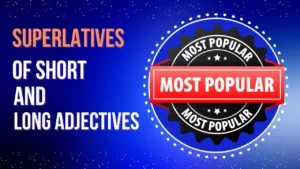
Introduction
The future perfect simple is used to talk about action or event that will be completed before a particular point of time in the future. It is formed by adding the past participle of the verb to will have.
To be more informed about this tense, study the following table.
Basic notes to remember
| FORM | – Formation rule: Subject +will have + past participle – Affirmative/Positive: I/You/We/They/He/She/It will have gone/finished – Negative: I/You/We/They/He/She/It will not (won’t) have gone/finished – Interrogative: Will I/you/we/they/he/she/it have gone/finished? |
| USE/FUNCTION | Action which, at a given point of time in the future, will be in the past or will have just finished |
| EXAMPLES | – By next week, I will have finished this project. – She will have visited Paris by the end of next year. |
| SIGNAL WORDS | – by + expression of time – by then |
Future perfect simple: exercise
Put the verbs between brackets in the future perfect simple (affirmative, positive, and interrogative)
- I (leave) by six a.m.
- (I/finish) the report by the deadline.
- When (we/do) everything?
- She (finish) her exams by then, so we can go out for dinner.
- You (read) the book before the next class
- She (not/finish) work by seven.
- When (you/complete) the work?
- They (arrive) by dinner time.
- We (be) in London for three years by next week
- (she/get) home by lunchtime?
- (you/do) everything by seven?
- (not/eat) before we come, so we’ll be hungry.
- (he/finish) his exams when we go on holiday?
- (we/arrive) by the time it gets dark?
- (you/get) married when you reach the age of 17?
- He (not/complete) the project by July.
- How long (you/be) in this company when you retire?
- (She/finish) the cleaning by six.
- They (leave) the classroom by the end of the hour.
- (buy/he) the new house by October?






